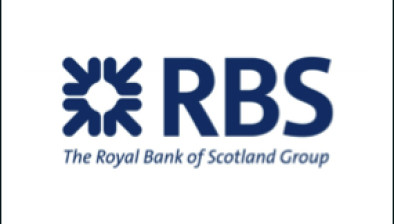RBS report flags weaker outlook for Scottish labour market

The Scottish labour market experienced a significant downturn in August, with surveyed recruiters signalling sharp decreases in both permanent placements and temp billings, according to the latest Royal Bank of Scotland Report on Jobs survey.
Vacancies fell for permanent staff and stagnated for short-term roles. Nonetheless, pay pressures picked up slightly from July, as shortages of skilled candidates continued to drive up starting salaries and wages.
Fresh contraction in permanent placements
Following a brief rise in July, latest survey data signalled a renewed fall in permanent placements across Scotland during August. Moreover, the rate of contraction was the strongest since April, with recruiters often linking the reduction to weaker economic conditions and a shortage of skilled and desirable candidates.
That said, the downturn in permanent staff appointments at the UK level was much quicker than that seen in Scotland.
Recruiters across Scotland signalled an eleventh successive monthly reduction in temp billings midway through the third quarter. After having eased in July, the rate of decrease quickened notably to the fastest since May and was marked overall. According to anecdotal evidence, a lack of new work at clients was behind the latest reduction.
Furthermore, the rate at which temp billings contracted in Scotland was much faster than that seen across the UK as a whole. The latter saw a marginal reduction following a three-year period of growth.
Quicker deterioration in permanent staff supply
August data revealed a deterioration in permanent candidate availability across Scotland, thereby stretching the current run of decrease that began in February 2021. The rate of contraction picked up from July and was the fastest in eight months. Increased hesitancy among people to move roles amid the current economic climate as well as skill shortages were linked to the latest reduction in permanent labour supply.
Moreover, the downturn across Scotland contrasted with a rapid increase in permanent candidate numbers at the UK level.
As has been the case in each month since March 2021, the availability of candidates for temporary roles across Scotland deteriorated during August. Recruiters often commented on a general shortage of skilled labour. While the rate of reduction picked up from July, it remained much softer than those recorded a year ago and was broadly in line with the series average.
In contrast, the supply of short-term workers increased at the UK level and at a rapid and accelerated pace.
Starting salary inflation remains marked
Salaries awarded to permanent new joiners in Scotland continued to increase during August, extending the current sequence of pay growth that began in December 2020. The rate of salary inflation accelerated from July and was faster than the historical average. Recruiters often attributed higher pay to efforts to secure sought-after and skilled labour.
Scotland recorded a stronger rate of growth in permanent salaries than compared to the UK-wide trend.
As has been the case in each of the last 33 months, average wages for short-term staff increased across Scotland during August. The pace of temp wage inflation quickened for the second successive month, to signal a sharp rise that was once again stronger than the UK-wide average. A number of surveyed recruiters commented that an ongoing shortage of skilled candidates had pushed up hourly pay rates.
Fresh fall in permanent vacancies
Following a two-and-a-half-year period of expansion, permanent vacancies in Scotland declined during August. However, the rate of contraction was modest overall. Meanwhile, growth of demand for permanent labour cooled across the UK as a whole, with vacancies rising only fractionally overall.
Executive & Professional saw the steepest drop in permanent vacancies, followed by Hotel & Catering.
After expanding for two consecutive months, demand for temporary workers across Scotland was broadly unchanged during the latest survey period. In contrast, short-term vacancies at the UK level continued to increase solidly overall.
Executive & Professional and Secretarial & Clerical categories registered the strongest drops in demand for temporary staff.
Sebastian Burnside, chief economist at Royal Bank of Scotland, commented: “The latest survey data highlighted renewed weakness across the Scottish labour market.
“A smaller pool of desirable and skilled candidates and the muted economic climate meant that hiring activity remained subdued during August, with both permanent placements and temp billings falling sharply.
“Moreover, fewer work opportunities translated into a reduction in permanent vacancies. Nonetheless, both starting salaries and wages continued to rise at historically strong rates. Competition for scarce and skilled candidates often meant that firms had to pay more to secure the right talent.
“Going forward, with fewer vacancies in the market, and firms already limiting their hiring, the survey suggests a weaker outlook for the Scottish labour market in the remaining months of 2023.”









